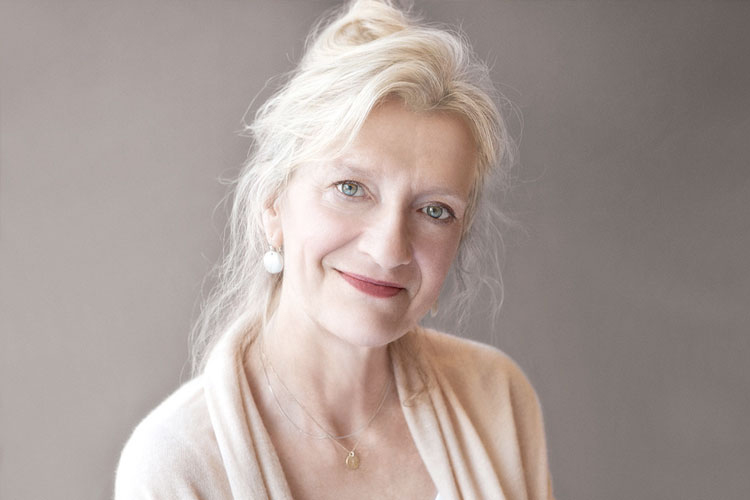From the Women’s Prize Archives.
We caught up with Elizabeth Strout, New York Times bestseller and author of the Lucy Barton series. The first novel My Name is Lucy Barton was longlisted for the Women’s Prize for Fiction 2016. Read on to find out about Elizabeth’s fleeting dreams of being a concert pianist, the experience of seeing her Pulitzer Prize winning novel Olive Kitteridge being adapted for the small screen and the initial inspiration for her iconic and well-loved character – Lucy Barton.
Did you ever want to be anything but a writer?
Elizabeth Strout: I never remember wanting to be anything but a writer. In fact, I feel I was born a writer, and I always knew that. I do remember a phase when I was quite young, thinking perhaps I could be an astronaut (I suspect the point of view was interesting to me, to think of seeing the earth all on its own, so far away.) And I remember fleetingly wishing I could be a concert pianist, but I had such stage fright I knew that would never happen. So writing was always with me, starting from my earliest memory of myself; I was a writer.
What was the initial inspiration behind My Name is Lucy Barton?
I guess the inspiration for Lucy Barton came from initial scenes I kept playing with, having a mother and a daughter in that hospital room. I sort of never intended to write that book, it just kept coming to me and unfolding to me as I heard her voice. It was kind of a strange, and lovely, experience. But the initial impulse had something to do with that mother at the foot of her bed in the hospital.
Your Pulitzer Prize winning novel Olive Kitteridge was made into an Emmy award-winning HBO adaptation – did you enjoy seeing your characters brought to life for TV?
It was an amazing experience for me to see my characters brought to life in the film of Olive Kitteridge. I think they did a fabulous job, and the first time I saw it, things felt surreal. I kept thinking: this is beautiful, but it has nothing to do with me, and then every so often I would think: oh, I made that character. It was very odd, but I could not be more pleased with the adaptation.
Is there a particular place where you like to write?
You know, the truth is, I seem to be able to write anywhere. But I guess I prefer the table in our dining room, and then I may wander over to the couch. In Maine I have my own studio, which has been wonderful – a whole room just for me; amazing! But I really can write anywhere, the subway, a coffee shop… Though I prefer to be home where there is space to spread my stuff around, I am a very messy worker.
The character of Lucy Barton is practically the polar opposite to Olive Kitteridge – which narrator was easiest for you to inhabit?
Such a good question. Yes, Lucy is about the polar opposite of Olive. I think in many ways Olive felt easier to inhabit because she was so there, so pronounced, so almost violent in her response to the world, so there was always a lot to work with, dramatically speaking, on the page. Lucy’s voice was what made me able to inhabit her, and she was not difficult once I found that voice, but her presence on the page is a quiet one, and not like Olive in that way, and so the dramatic aspects of the book are quite naturally very different.








